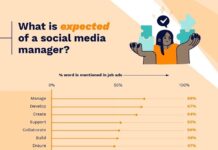Regular readers will know that I’ve been working on the Best of the Backchannel posts, where I get to read through all of the tweets that attendees sent during our most recent Realtime Conference, and create posts summarizing the key take-aways via your tweets. (By the way, I love doing these!)
Ironically, on the day that Twitter announces that they will begin streaming promoted tweets in the timeline itself, I reached the point in the conference agenda at which I moderated a really interesting panel discussion that included Steve Klabnik, the founder of rstat.us Rstat.us is an open-source service that clones the basic functionality of Twitter with a non-commercial distributed system. The panel discussion also included Ajit Jaokar, the founder of futuretext and a respected authority on networked systems, and Joe Sarmiento from UberMedia, which had recently found itself on the wrong side of Twitter’s developer policies.
Steve Klabnik believes that “Twitter is too important to be owned by Twitter.” He started rstat.us not to compete with Twitter commercially, but to give people an alternative and to provoke debate about these issues in the realtime community. How should the ecosystem of developers be managed? What rights should the users of micro-blogging services retain to the content they’re creating? What business models best serve the interests of the founders and the community?
He got the attention of Realtime NY 11 attendees pretty quickly:
@nwjerseyliz: #RLTM Fascinating to hear @SteveKlabnik talk about “software sharecropping” in the @Twitter ecosystem. Alternative? Open Source
@cdn: Is rstat.us the new Twitter? #RLTM
And then he said this:
Marissa McNaughton was live-tweeting from the @RealtimeReport account, and added more detail, which Steve later replied to:
@RealtimeReport: .@steveklabnik: Ads are boring, and the last resort for startups. If that’s the base of your monetization strategy, you’re a lil’ late #RLTM
@steveklabnik: Thanks #rltm! And it’s true: every VC I’ve ever talked to says that selling ads is a business model of last resort.
@TheRealCherylM: It does feel fairly uncreative. Is there no other way to monetize? RT @steveklabnik: Thanks #rltm! And it’s true: every VC I’ve ever…
Over the last 3 or so years, plenty of pundits have offered suggestions on what Twitter’s business model should be. Many of these ideas were some variation on the advertising model. Others thought that perhaps Twitter should be more of a utility, rather than a platform, providing a service on which third-parties (developers, users) can create value.
Either way, here we are, and Promoted Tweets are now part of the stream. It’s not as scary as it sounds: you’ll only see them if you’re following a brand already, you can easily eliminate them, and so far the Twitter team has done a great job of helping advertisers to find ways to make their Promoted Products feel intriguing and not too spammy. There are some very smart people working on this issue at Twitter, and so far they are finding ways to make the product work for both users and advertisers.
For some, however, there will always be an inherent disconnect between the idea of injecting a sponsored message into a stream and the free-wheeling, open nature of the conversation on Twitter. Whether Twitter can overcome that with smart messaging, targeting and timing will be interesting to watch.
@nwjerseyliz: #RLTM This panel, critical of @Twitter’s policies, is refreshing after all of the gung-ho social media presentations.
Let us know whether you think that Twitter’s ad-supported business model is a major win, a massive fail, or just “boring.” We’ll keep hosting all sides of the debate.


